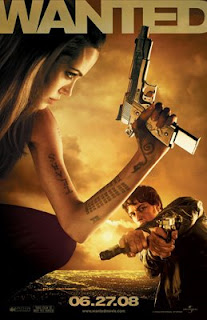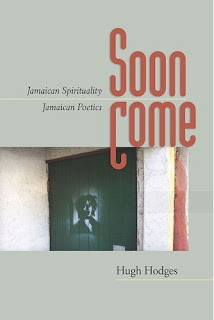 This weekend my family and I went to see Wanted, one of the best written Trickster movies in recent years. Well, it's not a pure Trickster movie. It's more of a Trickster/Warrior movie. This is all right with me because these are the two dominant archetypes in Jamaican culture.
This weekend my family and I went to see Wanted, one of the best written Trickster movies in recent years. Well, it's not a pure Trickster movie. It's more of a Trickster/Warrior movie. This is all right with me because these are the two dominant archetypes in Jamaican culture.To a certain extent, Wanted follows the pattern in James N. Frey's, The Key: How to Write Damn Good Fiction Using the Power of Myth which applies Joseph Campbell's insights into the structure of the so-called "monomyth" to creative writing. Many avid moviegoers will recognize the elements which have been used in films such as Star Wars, The Matrix, and Harry Potter.
1.The story opens with the hero, usually male, functioning badly in the Everyday World and desiring something (he doesn't know what he wants) to escape from his mundane life (Neo's wake up call in The Matrix)
2. A Herald bursts into the hero's life with a Call to Adventure: to go on a Quest to recover/retrieve something that has been lost or stolen (Princess Leia in Star Wars)
3. The hero may or may not answer the Call to Adventure. If he refuses the call, he will suffer. This is the plight of many of the characters in James Joyce's Dubliners.
4. For novels and full length films, the hero accepts the Call (sometimes reluctantly) and meets a Mentor (Morpheus in The Matrix or Dumbledore in Harry Potter) who introduces the hero to the Armorer and the Magical Helper (Mouse, Apoc, and Tank in The Matrix)
5. A Threshold Guardian appears at this moment and warns the hero of the dangers. Cypher in The Matrix: "Little piece of advice: you see an Agent, you do what we do; run. Run your ass off." If the hero ignores the advice, he crosses The Threshold and enters the Mythological Woods. The hero has begun The Initiation.
6. During the Initiation, the hero will be Tested and will learn all the rules of the new environment. Morpheus's advice to Neo: "This is a sparring program. Similar to the programmed reality of the Matrix. It has the same basic rules . . . rules like gravity. What you must learn is that these rules are no different than the rules of a computer system. Some of them can be bent. Others can be broken."
7. The hero may have a Sidekick (Trinity in The Matrix) and encounters many variations of the female archetype: Mother, Goddess, Witch, Whore, Femme Fatale (The Oracle, Persephone, Niobe in The Matrix and The Matrix:Reloaded)
8. The hero will also be in conflict with the Evil One (Valdemort in Harry Potter) or his willing surrogates. (The Merovingian in The Matrix: Reloaded)
9. The hero will be betrayed, have a change in consciousness, fall in love, or lose a loved one to death.
10. The hero will undergo a Death and Rebirth. (Neo's death and rebirth in The Matrix)
11. Confrontation with the Evil One in his or her environment (Neo and The Architect)
12 The hero fails or triumphs (momentarily) over the Evil One (Neo and The Architect in The Matrix: Reloaded)
13. The hero returns to the community and is Retested.
14. During the return, there is another confrontation with the Evil One and the hero gains the prize.
15. Once the hero is reintegrated back into the community, the prize may be rejected or an imposter may take the credit.
I was also intrigued by the use of Trickster symbolism and its connection with Yoruba and Akan mythology:
1. X of Eshu (Eleggua, Papa Legba), God of the Threshold2. The web/loom of Anancy mythology
3. The circles used in Akan and Yoruba mythology and the necessary creative irruption that causes dis-equilibrium and the appearance of the Trickster
And, of course, there was Angelina Jolie







